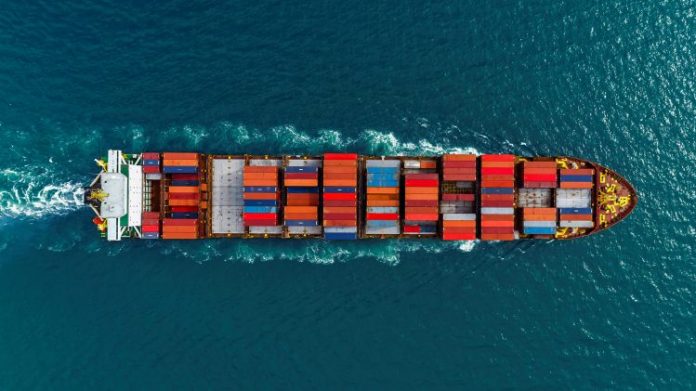To achieve net-zero greenhouse gas (GHG) emissions from international shipping by 2050, the International Chamber of Shipping (ICS), along with 47 governments, has submitted a joint proposal for the final round of negotiations at the United Nations’ International Maritime Organization (IMO).
The proposal calls for the adoption of a GHG emissions pricing mechanism for international shipping.
This submission has garnered support from major shipping nations such as Greece, Japan, South Korea, and the United Kingdom, as well as the world’s largest flag states including the Bahamas, Liberia, Marshall Islands, and Panama. It is also backed by all European Union member states and the European Commission, along with other African nations like Nigeria and Kenya, and Small Island Developing States from the Caribbean and the Pacific.
The proposal sets out aligned regulatory language for amendments to the IMO MARPOL Convention, which would mandate shipping companies operating international voyages to contribute to a new “IMO GHG Strategy Implementation Fund” based on the CO2e emissions per tonne from their ships.
The primary aim of this mandatory GHG charge is to narrow the cost gap between zero/near-zero GHG emission (ZNZ) fuels—such as green methanol, ammonia, and hydrogen—and traditional marine fuels. This initiative is designed to incentivize the swift adoption of green energy sources. The funds raised will be used to promote the production and uptake of ZNZ fuels and provide billions of US dollars annually to assist developing countries in their maritime GHG reduction efforts.
International Chamber of Shipping Secretary General, Guy Platten commented: “The industry fully supports the adoption by IMO of a GHG pricing mechanism for global application to shipping. The joint text put forward by this broad coalition is a pragmatic solution and the most effective way to incentivise a rapid energy transition in shipping to achieve the agreed IMO goal of net zero emissions by or close to 2050.”
Platten went on to add: “We are very pleased that such a large and diverse group of nations now firmly supports a common approach to maritime carbon charging. This proposed joint text has been hard fought and is broadly based on ideas that ICS has been advocating for the past ten years. While a large number of governments now support a universal flat rate GHG contribution by ships – or something similar – a minority of governments continue to have concerns. Working in co-operation with all IMO Member States we will do our best to allay such concerns during the final stages of these critical negotiations about regulatory text.”
This comprehensive regulatory proposal will be reviewed at a key IMO meeting scheduled for the week launching on 17 February 2025 (ISWG-GHG 18). If the amendments to the MARPOL Convention are approved by the IMO in April 2025, they are expected to take effect globally in early 2027, with the collection of annual GHG contributions from ships beginning in 2028.







